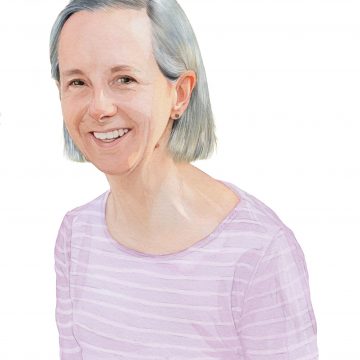What should students expect from their College and the University?
Professor Graham Virgo QC is Pro-Vice-Chancellor for Education.

Cambridge’s mission is to ‘contribute to society through the pursuit of education, learning and research at the highest international levels of excellence’. Our excellence in research has been evident throughout our history.
Since 1986, the government has measured the quality of research undertaken by British higher education institutions through a system now known as the Research Excellence Framework (REF). But until this year, our education provision – excellent though it was known to be – had escaped such scrutiny by central government. No more. In June 2017 the results of the Teaching Excellence Framework (the TEF), an attempt by government to recognise high quality teaching and learning, were announced.
It was no surprise that the University was awarded gold – the highest grade. I can imagine alumni may have two reactions to this. The first is to comment that it is no secret that teaching and learning in Cambridge is excellent. And the second may well be to ask why we have not made more of it. Many institutions celebrated publicly and have added their TEF awards to their marketing literature, but our response was deliberately muted.
The reason for this response is – as always with new government initiatives – complex. Cambridge has no fear of scrutiny, and it welcomes anything that can help us improve the quality of education here – or indeed across the UK higher education sector. But the new system is flawed.
Despite its name, the TEF does not actually assess the quality of teaching. What it does is to take six metrics – including student responses to the National Student Survey, student retention and graduate employment – and use these to benchmark the quality of education. It is these benchmarks that are used for the grading not absolute performance. So, a modern university expected to score in the 60s and 70s could get a gold if it does better than this, but a top research university with a benchmark in the 90s could miss out if it drops just below its target.
Despite our reservations about the methodology, and we have made our views known to government, its introduction should be welcomed. With students paying high tuition fees, they should have confidence in the quality of their educational experience. At Cambridge, the introduction of the TEF has resulted in a renewed institutional focus on teaching and
learning support. There has been a recalibration of priorities, with educational excellence increasingly being treated with the same respect given to research excellence. As a consequence, the Centre for Teaching and Learning has been established to provide an institutional focus to reflect on how teaching and learning should be delivered and how we should examine our students, as well as facilitating the sharing of best teaching practice.
It is not helpful to characterise students as ‘consumers’ and the University as the ‘provider’
TEF is significant in another respect, since it is further evidence of a radical change in the relationship between students, increasingly characterised as ‘consumers’, and universities. Tuition fees have been increased to £9,250 for those matriculating in 2017. While the government’s intention was for TEF performance to be linked to a university’s ability to increase its fees further in the future, the recent decision to freeze tuition fees suggests that the link between TEF and fees may be permanently broken. Students need to have confidence that they are getting value for their money.
That constitutes a legitimate concern for students at Cambridge too, although the cost of an undergraduate education at Cambridge is twice as much as the tuition fee. The extra cost is absorbed by the collegiate University.
Despite the tuition fee, it is not helpful to characterise students as ‘consumers’, (for what are they consuming?), or the University simply as a ‘provider’. Rather, the relationship between student and the collegiate University is properly characterised as a partnership. All students coming to Cambridge, whether undergraduate or postgraduate, have a right to expect a world-class education, where they can engage with exceptional teachers and researchers. But with this comes responsibility on the part of each student to ensure that they fulfil their potential and take advantage of the academic and extracurricular opportunities available to them.
So, too, there is a responsibility placed on the collegiate University to ensure that the educational experience is world leading. This requires us to engage with negative experiences, such as responding to sexual misconduct, which we have done through the creation of an innovative and supportive sexual misconduct complaints procedure.
It also places an obligation on the University to ensure that our teaching and learning facilities are modern and competitive, which we are developing through the implementation of a digital education strategy. But this should only complement, and not replace, what has made education at Cambridge exceptional for hundreds of years, namely the personal engagement with world-leading teachers and researchers through the supervision system, which is the jewel in Cambridge’s crown, as was explicitly confirmed by the Teaching Excellence Framework.







